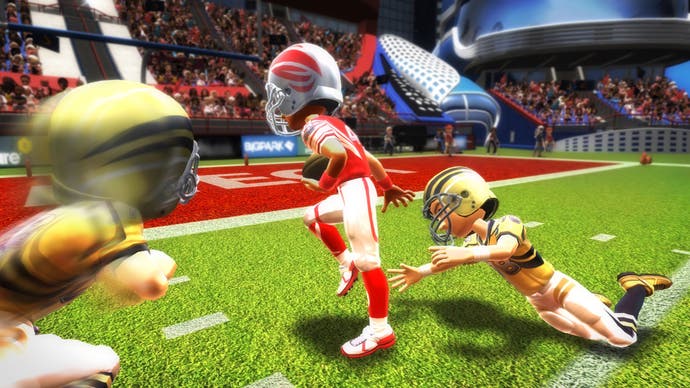A Rare view of the future of Kinect
Scott Henson reveals Microsoft's motion-sensing strategy.
We'll look back fondly on that last year as the beginning of the journey you're asking about. The vocabulary will continue to increase. Then we're going to continue the way you talk. You'll just be able to speak naturally. It will pick up the right phrases no matter what the language is, no matter who it is.
If you say something like Harry Potter and then you get delighted with a bunch of results with a very simple command, and you do it in a way that's very natural and effortless, you're not thinking about it. It moves from a point of convenience to a point of being very natural and effortless.
"Tell Me" became a part of Microsoft a few years ago. A lot of their technology and the speech recognition team's technology underpin what you see in Kinect. Their special sauce is a lot of voice activated systems where you talk naturally. They have this big server rendering that listens to what you say and you get the result you expect. You're starting to get glimpses of that with what we're doing with Bing.
You'll literally say something like, 'you know caddy, I think I need something that helps me with the wind conditions.' Then the caddy will respond with, 'well, it could be either a six iron or a seven iron.' And you say, 'oh, I'd like the seven iron.' It'll be that natural of a conversation.
Yes. In our game it will be, 'change club seven iron.' But absolutely, without question, the journey we're on is what I just described. That is where we will go. And guess what will be there? Software. Software will be the key that unlocks why that's possible. We already have the microphone there. Now we just need to continue to adapt and grow and build our software to make that better.
It's a tricky thing. When we talked about Xbox Live we talked about instant, always available games you could download any time you wanted and they'd just be there and you could just play them. That was the bold ambition.
Back then I was trying to convince people that downloadable content actually might be a big thing. I can't even say it without chuckling, because it seems so fantastical right now we would have even have had that conversation.

With Kinect, a lot of what we're communicating is what our ambition is and where we want to take this and where we want to lead and go. We know it's going to be a journey. No-one should ever think what we've released is final. That's just not how it's going to be with first-party or with the platform in general.
I remember people saying, well, you didn't do scanning objects - because we had the skateboard and stuff like that. I'm like, guys, that doesn't mean we won't. It's just we haven't got to that yet. It's just part of our journey, and we're trying to show our ambition and where this will go. Think of this as not a destination but a journey.
This year, in Kinect Fun Labs, we're scanning in objects and we're turning them into 3D objects in real-time. It's a great example of us talking about our ambition and then, of course, we delivered on the ambition. We'll continue to deliver on the ambition. It really is limitless. It's up to the creativity of the industry to see how far we're going to take this stuff.
Do I think it can be done? Absolutely. I saw Ubisoft stand up on stage and show something that looked very Minority Report. Remember, before I came to Rare, I was working on the platform team. I ran the industrial design team and the software dashboard team. A lot of what we were doing was exactly what you're asking about.
The question we have to wrestle with all the time was how far down the path do you go between simplicity and refinement? Ultimately, at the end of the day, from a user interface perspective, you want to get people quickly on their journey and into the fun. And you want to do it in a way that's clear for folks, too.
Our industry is a very engaged industry, and very smart. They know technology inside and out. When you build something for tens of millions, hundreds of millions of people, you have to scale to tens of millions, hundreds of millions of requirements as well. We need to strike that balance between what's possible and what actually works and people can understand.
It's analogue, and they need to have a great experience, and we take that very seriously. The more skilled you get at it, the more you need to be rewarded as well. Everyone needs that fun, but at the same time there needs to be this sense of progression and skill. It's a challenge. We welcome it with open arms.
